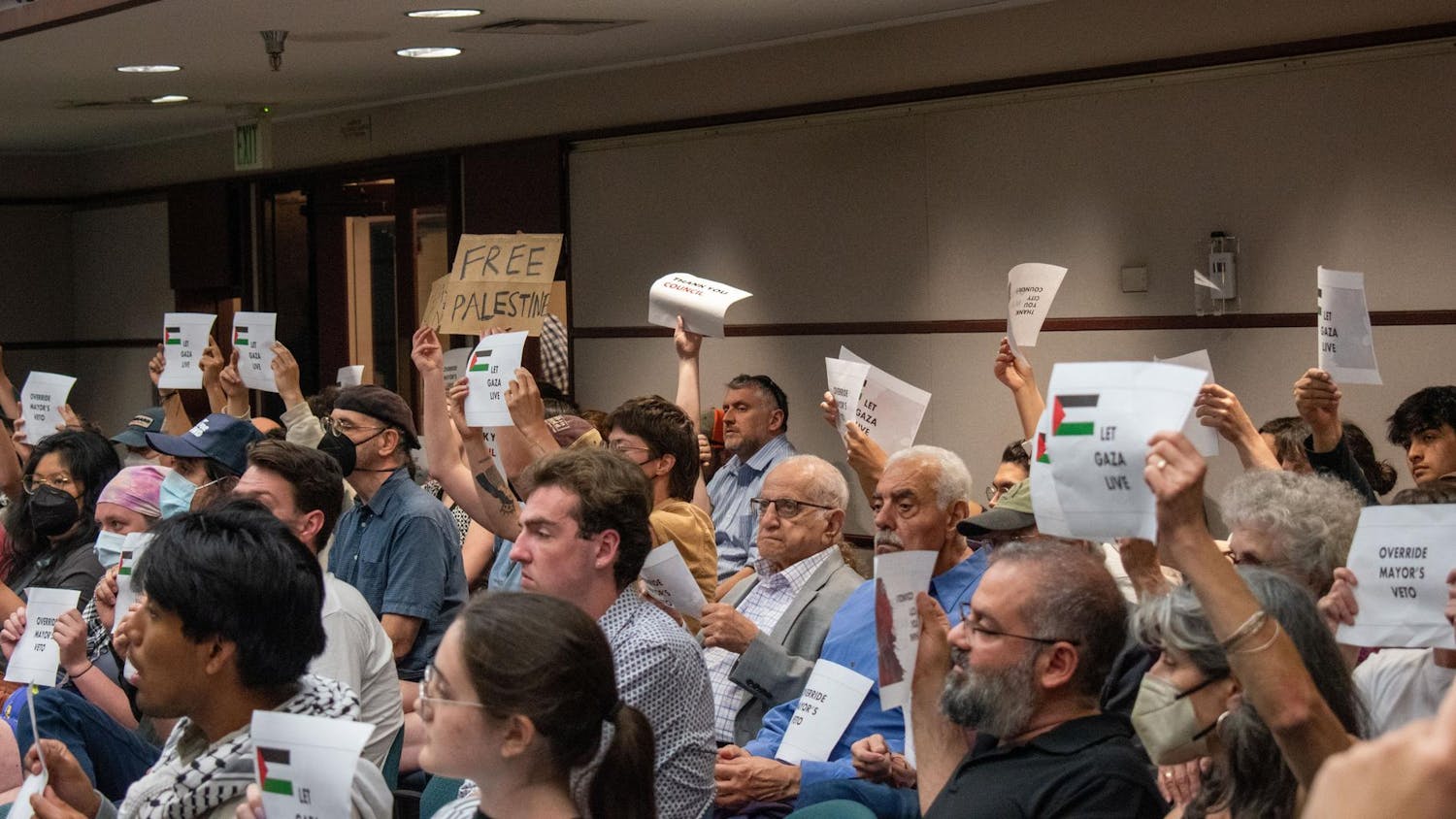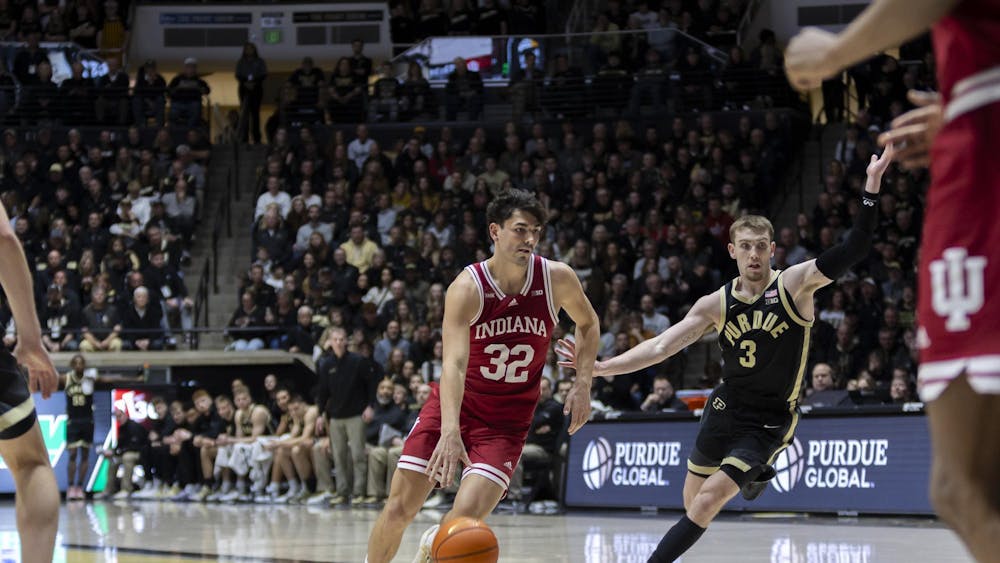On Wednesday evening, at a panel discussion on the Black Lives Matter movement and policing, IU Police Department Chief Laury Flint asked the audience to take their notebooks and draw three lines, a circle on each line and a line connecting the first three.
The final drawings looked a little different on each person’s sheet of paper. The point Flint said she was trying to make was that people with different experiences interpret the same instructions differently.
“We don’t see things as they are,” Flint said. “We see things as we are.”
Flint used this example to talk about the need for police officers and citizens, particularly black citizens, to communicate more clearly during each interaction. Even among panelists and audience members at the discussion, communication was often tense.
“While the relationship between police and black students doesn’t strike me as glaringly flawed, there are still proactive steps that police and IU should take to make sure things stay that way,” law student Richard Benson said. “The panelists speaking to us disagreed on a lot of the ways these changes should happen.”
Recognizing the disproportionate number of negative interactions between black citizens and police officers is the first step that needs to be taken, criminal justice professor Akwasi Owusu- Bempah said.
“Blacks were 30 percent of the 6.5 million people arrested in 2014, even though blacks are only 13 percent of the population,” Owusu-Bempah said. “And part of this is because certain groups commit some types of crime more often than others. But even that, at its root, is because of the structural disadvantages and segregation blacks experience.”
The point of discussions about the issue are often to find a way to hold police officers more accountable, law professor Jeannine Bell said. From there, panelists and audience members brought up drastically different solutions to the problem of accountability.
Owusu-Bempah focused on changing the system of policing as a whole. Police departments are a social institution, though many people don’t think of them that way, he said.
“You can’t change the minds of individual people very easily,” Owusu-Bempah said. “But you can advocate to change policies and create incremental institutional change.”
Another panelist, history professor Jakobi Williams, said attention on individuals can make a recognizable impact.
“The Black Lives Matter movement has become, in my opinion, the most recognizable expression of black outrage against injustice,” Williams said. “It has brought this issue into the public eye and put pressure on prosecutors.”
Forward-thinking police procedures and efforts towards transparency were the clear ways to move forward according to both Flint and Bell. Flint highlighted recent diversity sessions held among police officers and the need to remember the public service aspect of police work.
Body-worn cameras on police officers and case review boards comprised of students and citizens are efforts IUPD is considering to aid transparency, Flint said.
Bell said it is more important to create a shift in policing on a larger scale than departmental training. Police work should not be proactive, but reactive, Bell said.
“These are things that need to be done on both a national level and in a place like a college campus,” Bell said. “Whether or not there have been problems with police violence, officers need to learn how to take a step back from the problem before acting.”
But even the extent of the problem was up for debate between different panelists and audience members. Bloomington Police Department Chief Michael Diekhoff stated that 99.1 percent of interactions with police officers are positive, while others in the crowd stood up and claimed they did not believe him.
Some students felt that while the discussions were a good first step, they needed changes in conversation before any actions proposed would make a difference.
“You can implement as much transparency and as many tools like body cameras as you want,” said second-year graduate student Chris Hampton. “But unless officers and professors can be transparent about how police officers work in discussions with us, nothing is going to change about how blacks feel around police officers.”
The need to address relationships between police officers and minorities has been a problem and may remain a problem for a long time, Bell said.
“If we don’t actually act to change how police treat blacks, we will be back here still talking about the same thing in 20, 30, 40 years,” Bell said. “This is a multi-front war, and we need people of courage in every space to start holding police accountable.”





